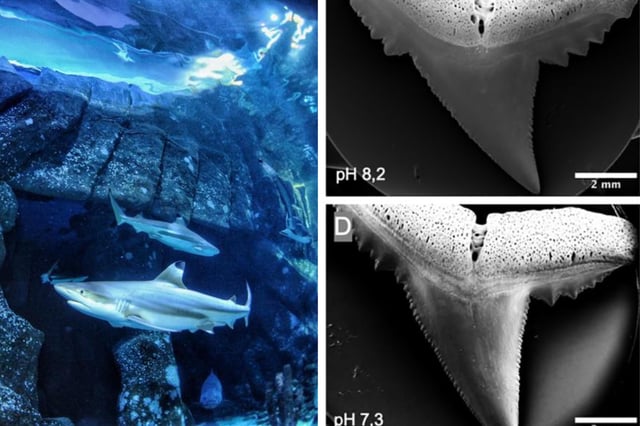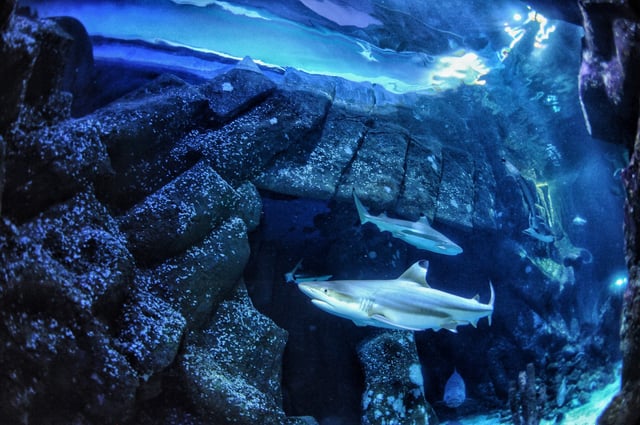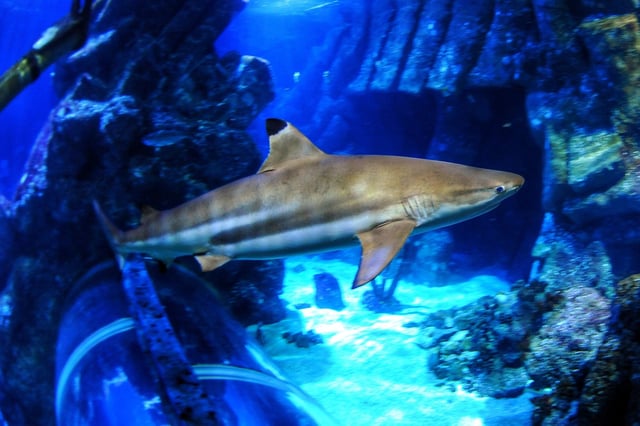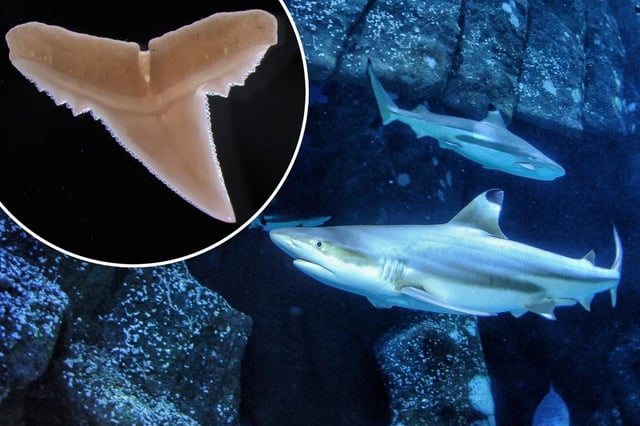Overview
- Researchers incubated discarded blacktip reef shark teeth at pH 8.1 and at a projected 2300 scenario of pH 7.3 for eight weeks and observed significantly greater corrosion in the more acidic water.
- Using a corrosion-by-area index, teeth at pH 7.3 deteriorated about 50% more, showing cracks, holes, root corrosion and structural weakening from crown to root.
- Teeth in the acidic treatment showed an average circumference increase of about 0.73 millimetres, reflecting roughened, irregular surfaces rather than growth and indicating greater fragility.
- The study used 16 intact teeth for the paired pH test and additional samples for circumference measurements, drawing from roughly 600 teeth collected in an aquarium, and was published in Frontiers in Marine Science (2025).
- Authors and outside experts note the test used non-living tissue and did not capture repair or replacement in living sharks, urging live-animal, multispecies and biomechanical studies as IPCC-linked projections put average ocean pH near 7.3 by 2300 with potential impacts on feeding and ecosystem dynamics.



